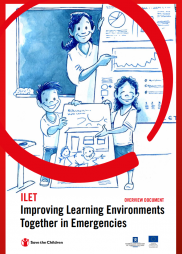Application deadline: 31 January 2019.
Location: Brussels, London, Lyon or Paris.
Contract duration: 18 months.
Read full details.
HI is looking for an Inclusive Education Development Officer to bring new skills and expertise to this expanding area. 2019 will be a crucial year for inclusive education on an international level. The Development Officer will help build new consortiums and help capitalise on the commitments made at the Global Disability Summit for new partnerships and make the most of new donor initiatives. The Inclusive Education Development Officer is a member of the inclusive education team under the management of the Social & Inclusion Director, based in Lyon (HQ)
The Inclusive Education Development Officer will provide technical support and engage in communication and advocacy to develop and expand HI’s profile and impact through:
- Contributing to influencing donor and stakeholder policies including states, practices and budget priorities to improve inclusion of children and young people with disabilities and vulnerable children in education in international development;
- Promoting HI’s inclusive education technical positioning, approaches, know-how and expertise in relevant mainstream networks with the objective to form alliances and consortia, especially in the field of inclusive education in emergencies and protracted crises;
- Providing technical expertise and capacity building to HI staff (so they are better able to propose technical assistance to mainstream organisations);
- Developing and following up of new inclusive education projects and support to global inclusive education specialists with other inclusive education projects with a portfolio of flagship projects (TBD) (representing the range of expertise in the sector).
Person specification
- university degree in education or education related degree or in social work, international development
- 5-7 years of experience in education in emergency, fragile and/or development contexts
- strong experience of inclusive education focusing on excluded groups, vulnerable people and/or persons with disabilities, and strong background experience in networking, building partnerships, advocacy and policy development
- excellent written and oral communications skills, capacity to transfer skills and train or coach others, and solid experience providing technical support and oversight to education programmes both in humanitarian and development settings.
This is a full-time position. The successful candidate will regularly travel internationally, including to Europe/North America as well as to countries of intervention.

